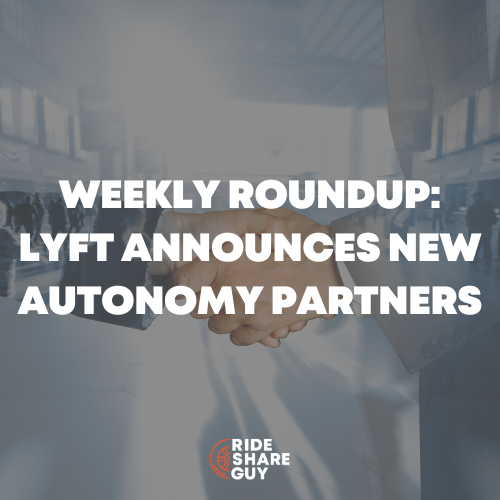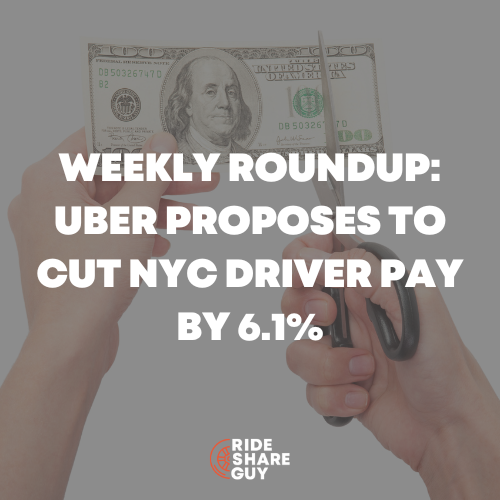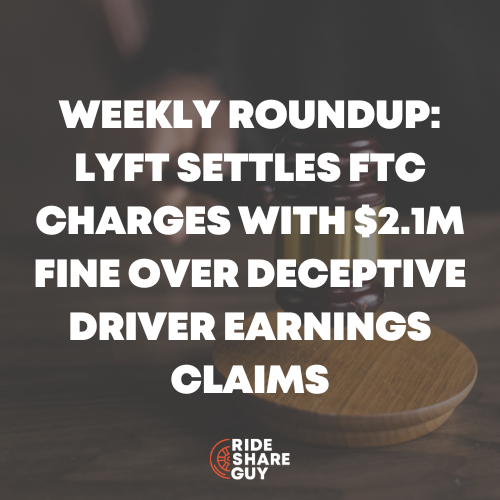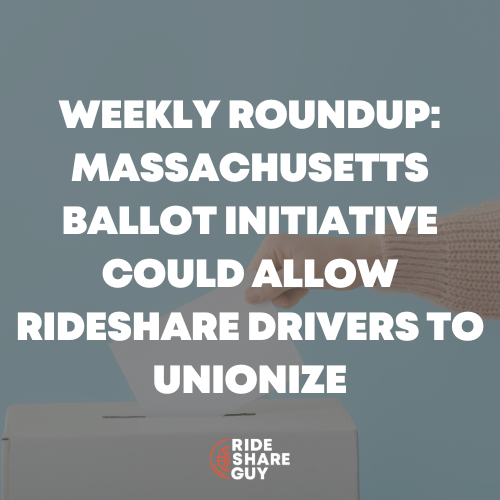I’ll be taking a 10 day vacation to Peru with my wife starting this Tuesday but things should be business as usual here on the blog. I’ll still be posting 3-4 articles per week, releasing podcasts and publishing Youtube videos while I’m gone. It just may be a while before I respond to comments, e-mails, etc so talk to you guys when I get back!
Today, RSG contributor, John Ince, takes a look at all of the top stories from the past week. The feature article is a story on Travis Kalanick from Fast Company that was researched for nearly 5 months by the author. TK is often portrayed in a negative light in the media but this story really goes past the surface and details the good and the bad about one of the most influential CEOs of our day.

What Makes Uber Run
Sum and Substance: Jordan Kretchmer remembers what Travis Kalanick was like before Uber was Uber. Kretchmer was a 25-year-old college dropout with a lot of ideas, and Kalanick had even more. He was in his early thirties, an engineer who talked like a sales guy, smart as hell and high on life. He wore a cowboy hat and referred to himself as the Wolf, after the cold-blooded, coolly rational fixer played by Harvey Keitel in Pulp Fiction. He was tireless—always on the move, always thirsty.
My Take: This is a fascinating look at Uber CEO, Travis Kalanick and what makes him tick. Kalanick is rapidly becoming something of a media star. Next week he’ll be making an appearance on The Late Show With Stephen Colbert … sandwiched in between Jeb Bush, Elon Musk, Joe Biden and George Clooney. Not bad company … for someone who runs a company who many drivers believe is bad … bad … bad.
Uber comes out swinging at Emanuel’s proposed $1-a-ride fee
Sum and Substance: A ride-hailing giant whose investors include Hollywood super-agent Ari Emanuel, the mayor’s brother, came out swinging Tuesday against the mayor’s proposal to slap a $1-a-ride fee on ride-hailing services. Uber Technologies urged Mayor Rahm Emanuel to reconsider “this harmful plan” before the mayor has even had a chance to introduce the $1-a-ride fee…. The $1-a-ride surcharge actually originated with Ald. Edward Burke (14th), powerful chairman of the City Council’s Finance Committee. Instead of slapping a $1 surcharge on taxicab rides and using the money to shore up the city budget, Burke proposed adding ride-hailing companies to mix. During budget briefings, aldermen appeared to be united in their desire to stop giving Uber a pass and start giving Chicago taxpayers a cut of the action. … Emanuel plans to include the $1-a-ride fee on ride-hailing services in a massive revenue package that’s also expected to include a $500 million property tax increase for police and fire pensions and school construction, a first-ever garbage collection fee and a tax on smokeless tobacco products.
My Take: With eyes growing wide at Uber’s $50 billion valuation and 5 billion war chest, it’s just a matter of time until cities wake up and start to tack on fees to get a piece of the action. Uber’s response to this proposal is predictable, calling it “harmful” and saying it will take money out of driver’s pockets…. which of course will only happen if Uber puts the burden on drivers instead of itself. That would never happen … would it?
Cab companies sue state over Uber, Lyft
Sum and Substance: Tallahassee and Ft. Lauderdale taxicab companies have sued the Florida Department of Agriculture and Consumer Services in a latest attempt to curb the growth of tech companies like Uber and Lyft. In the lawsuit, filed Tuesday in Florida’s Second Circuit, says transportation network companies’ smartphone apps and GPS tracking should be treated the same as taxis’ fare meters under state law, and that they should therefore be subject to testing and approval by the state. “They both are necessary to compute the time and distance associated with a commercial passenger trip taken in a taxicab or a private car utilized by a TNC driver, in order to determine the customer’s fare,” the lawsuit says. “However, one is tested and certified by the Department of Agriculture and the other is not. This results in a competitive disadvantage to the Plaintiff Cab Companies.” By not enforcing the same regulations on Uber and Lyft that it does on cab companies, the lawsuit says, the Department of Agriculture and Consumer Services has created a competitive disadvantage. The suit was filed by Broward County taxicab operator BL Services, Tallahassee cab company Capital Transportation and Jeremy Lynch, a Tallahassee Uber customer who according to the lawsuit has complained about fares. The plaintiffs want Judge George Reynolds to require the state to treat Uber’s and Lyft’s smartphone apps like they do other devices for measuring the time and distance of a ride.
My Take: Okay, so what else is new – taxis sue Uber and Lyft? All these stories seem to blend into one another, but the steady drip drip drip eventually starts to create puddles. And puddles become a nuisance for companies that are looking to please investors with a clean business model.
Guess what? This game is far from over. Taxi’s are fighting back and in many cases they’re winning. Looks to me like the cab companies have a good case on this one. Taxis have prevailed in other states on the same issue. But even it they lose, TNCs will still be able to operate. This would just create more work for them … more puddles.
Uber Has Raised $1.2B More In China With Baidu Investing As Rival Didi Kuaidi Gets $3B
Sum and Substance: Uber — the app-based, on-demand transportation service — has been on has been on a fundraising tear as it expands globally in the face of major competition. China is the company’s latest battleground. Today, Uber confirmed that it has raised a further $1.2 billion in funding, led by search giant Baidu, in order to continue expanding Uber China, and the round is not yet closed. The news appears to have been timed to coincide with another big piece of funding in the Chinese transportation wars: Uber’s biggest competitor in the country, Didi Kuaidi, also confirmed today that it has raised an extra $3 billion for its own coffers. Uber’s news was first revealed in Chinese-language site Sina by Uber CEO Travis Kalanick, and Uber has confirmed the figures to us directly. Bloomberg first reported rumors of Didi’s funding, and on the heels of that we have directly confirmed the $3 billion number and $16.5 billion post-money valuation with sources close to the company…. Baidu’s role in this latest $1.2 billion investment is in addition to its earlier stake. As with the previous funding, Baidu and Uber are not disclosing the exact amount. We are also still trying to get the names of other investors in this latest round, which brings the total valuation of Uber China to over $8 billion. It’s not clear what size the round will be when closed: further investment and investors are still “in progress,” we’ve been told.
My Take: These numbers are getting staggeringly large – especially in a market that Travis Kalanick once said (read TK’s quote in Fast Company Article here) is tiny … I guess TK finally realizes it’s bigger than he originally thought. But I still see Uber’s China foray as problematic … This week I gave a ride to a young woman who lives in China and has just started studies here in the U. S. She said her boyfriend drives for Uber in China … basically because he’s so bored he has nothing else to do. He’s not making good money and doesn’t drive a nice car … which more or less supports Sarah Lacy’s observation that Uber’s scraping the bottom of the barrel in China to recruit drivers – whereas here in the U.S we all know that Uber only recruits “la creme de la creme” as “Everyone’s Private Driver.”
Uber to enter 100 more Chinese cities in next 12 months: CEO
Sum and Substance: U.S. ride-hailing service Uber Technologies Inc. will enter 100 more Chinese cities over the next year, doubling a previous goal set just three months ago, Chief Executive Travis Kalanick said on Tuesday. Uber’s China unit currently operates in almost 20 cities, Kalanick said at an event in Beijing held by Uber investor Baidu Inc (BIDU.O). The speech comes a day after Kalanick said the China unit had raised $1.2 billion during ongoing fundraising, while people familiar with the matter told Reuters that larger local rival Didi Kuaidi had brought in $3 billion. The two firms are spending heavily to subsidize rides and gain market share, betting on China’s Internet-linked transport market becoming the world’s biggest and most lucrative. “When we started this year, we were about one percent market share. Today, nine months later, we’re looking at about 30 to 35 percent market share”, Kalanick said. He did not specify whether that market was for all ride-hailing services including taxis, where Didi Kuaidi dominates, or just for private cars.
My Take: Seems like all the news about China is big news these days … but I’m perplexed by TK’s claim that Uber now has 30-35% market share in China. Sarah Lacy, in her big China / Uber expose last week put the figure about 12%.
This is a critical figure as Uber is all about using the network effect to crush the opposition … or get crushed by the opposition … as the case may be. Looks to me like Uber has met its match in China with a bigger and better funded rival that has local roots. Good thing Uber set up a separate company to operate there. Otherwise, a colossal failure in China might sink the whole ship … and I don’t think most drivers would like that.
What do you guys think about all of the top stories of the week?
-John @ RSG





